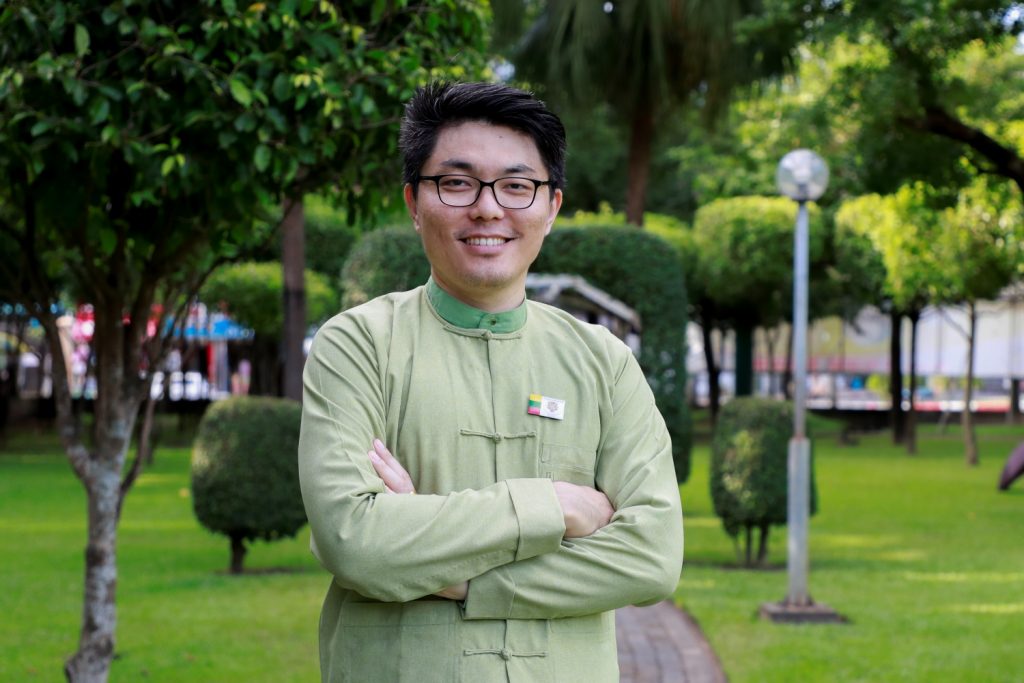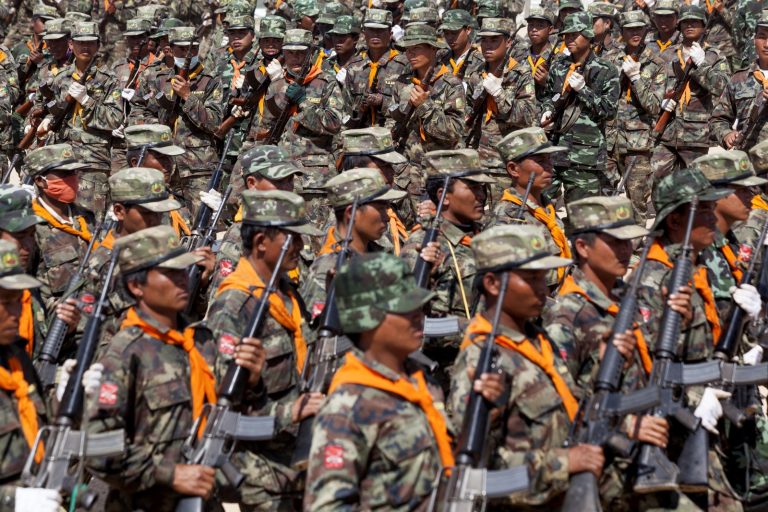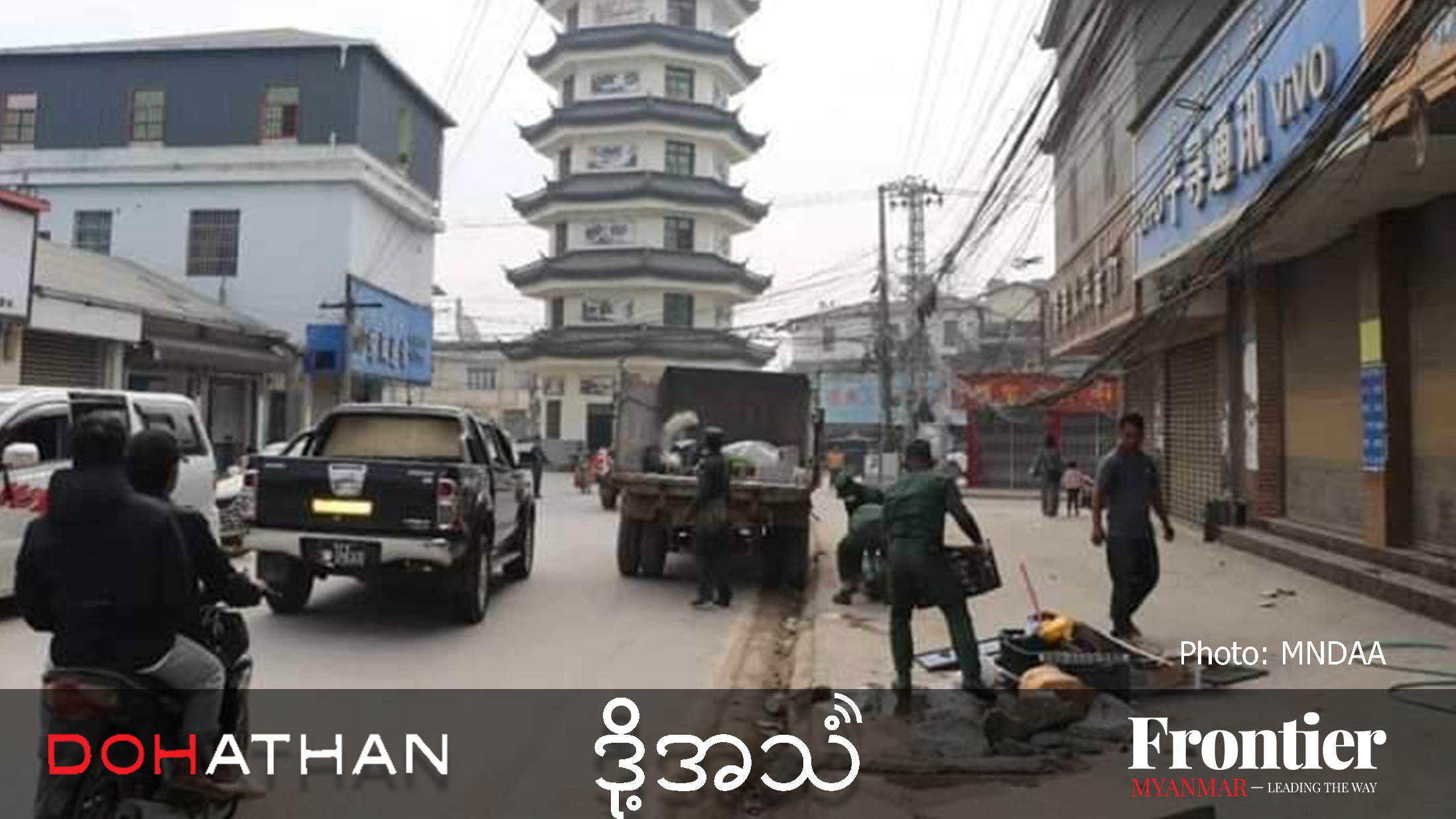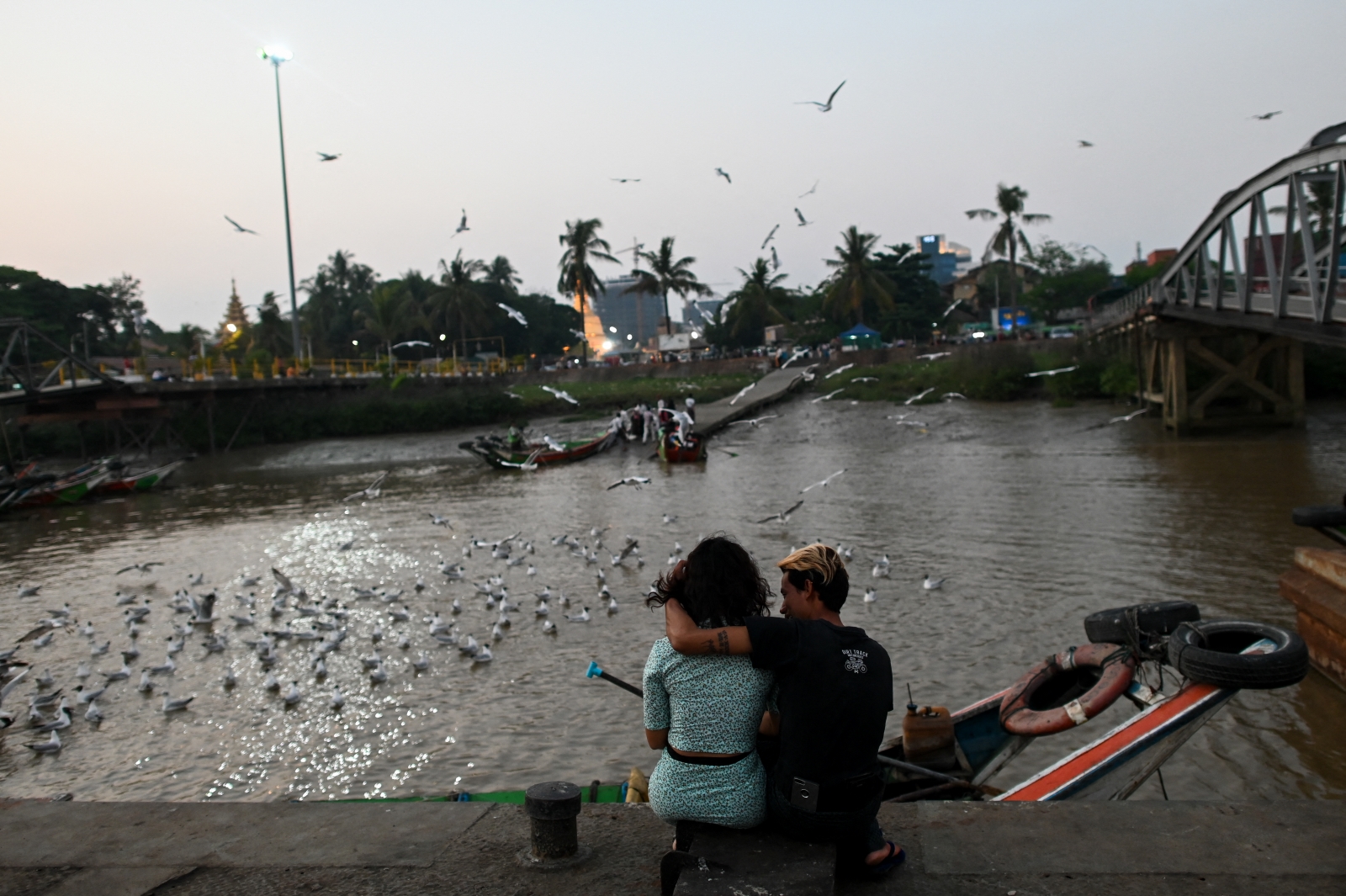NGO director Maw Htun Awng is an ethnic Kachin running as a Shan party candidate. He hopes his parliamentary bid will set an example for how a broad coalition for federalism can be built.
By HEIN THAR | FRONTIER
Eyebrows were raised when Maw Htun Awng, the 37-year-old country manager for the Natural Resource and Governance Institute, announced his bid for the Amyotha Hluttaw seat of Shan-5 in the November election. The constituency encompasses the northern Shan State townships of Muse, Kutkai and Namkham.
While it’s not uncommon for NGO professionals to run for parliament, what makes the Myitkyina-born, ethnic Kachin man’s candidacy unusual is that he is vying to be an MP for the Shan Nationalities League for Democracy. Many consider the party to be synonymous with the ethnic Shan, making a Kachin candidate an anomaly.
Most of the 92 political parties contesting this year’s vote were established to represent a particular ethnic group. The SNLD is no exception; it was founded by Shan youths in Yangon who took part in the 1988 uprising against military rule, and who formed the party ahead of the 1990 election. It won the second-largest number of seats in that vote after the National League for Democracy, but this came to nothing when the junta refused to honour the result. It has since performed well in Shan-majority areas in the 2015 general election and subsequent by-elections.
But ahead of this year’s vote, the SNLD has rebranded itself not merely as an ethnic or even a regional party representing Shan State in all its ethnic diversity, but as a national party premised on a federal policy for Myanmar. It fleshed out this stance in a 125-page Policy Platform released on September 10, which contains considerably more detail on national policy issues than either the NLD’s or opposition Union Solidarity and Development Party’s manifestos.
In an interview with Frontier, Maw Htun Awng says it is precisely this commitment to serious federal policy, and its willingness to transcend narrow identity politics, that drew him to the SNLD. He hopes his candidacy will prove an example for how a broad, inter-ethnic coalition for federalism can be built against an apparent lack of commitment from the ruling NLD. However, one of his motives for picking a constituency in Muse District – the large number of ethnic Kachin voters who might favour a Kachin candidate – suggest that appeals to identity will remain part of any hard-nosed strategy for winning seats in a first-past-the-post electoral system.
The following has been edited for length and clarity.
Why are you running as a candidate for the SNLD, and why in Muse District?
I may have been chosen to represent the SNLD to test recent policy changes they’ve made [towards becoming a multi-ethnic federal party, rather than a party for the ethnic Shan alone]. I have many boundaries to cross – geographical, religious and more.
As for the constituency, I had to think strategically and look for an area where I could get the most votes. In northern Shan, the ethnic Shan and Kachin live peacefully together, and support for the SNLD is strong. I thought Muse met my criteria, and the party agreed. I also wanted to represent the ethnic Kachin who live outside of Kachin State.
Sometimes, though, we are too bound by identity. We all have the same goal – a federal union. This includes every group that lives here – their culture, literature and collective ethnic rights. I want later generations to think about more than their own identity. I don’t mean to say it’s not important – it is – but you can stand for more than one thing. I want to show that inclusivity can help our ethnic people and the places where they live.
How do the Kachin people you know feel about your electoral bid?
First they were shocked. They asked, “Why did you choose a Shan party?!” But I explained that, in parliamentary politics, it’s all about numbers. No matter how good your policies are, you need the most votes. Many Kachin live in Shan State and have not been represented in government. There’s been no political space for them, because it’s impossible for a Kachin party to win here.
We also need to show that ethnic groups are united – in peace talks and in political dialogue. This is our new way, and we must propagate it. We can move beyond identity.
How will you help your constituents from hundreds of miles away in Nay Pyi Taw?
We have young party members in the constituency who are interested in politics and I’ll create opportunities to get them involved in policy. I plan on creating internships in my office for them; I won’t be working alone in Nay Pyi Taw. I intend to transform my present campaign team into a political machine after the election campaign ends. I have a blueprint for them to always keep in touch with local voters. I will not be a lone hero.
I’m more interested in software than in hardware. I want to change the way people live rather than just infrastructure and border trade. I want local residents, government authorities and armed groups to live together in peace and without fear. People must be able to live with dignity. Armed groups should treat people with respect and government officials should not demean people. They’re not there to flaunt their power.
Muse District is known for its Tatmadaw-backed militia groups. Do they pose a challenge to your reform plans?
People’s militias exist where the government cannot ensure the rule of law. They have become a normal part of life [in Muse District]. We cannot make them disappear overnight, but we can improve them. We have to accept them and win them over to our mission of federalism. Right now, their mission is unclear.
If we want to adopt policies that will lead to federalism, we must include the local security sector. When our missions are the same, we can work together.
After young, well-educated NLD candidates won seats in 2015, they were quickly frustrated by how little they were able to do within the party rules. Would you be able to avoid similar frustrations?
The [SNLD] party vice-chairman already told me it’s more important for a candidate to be loyal to the people than to the party. The SNLD will never bar a candidate from submitting their own proposal [in parliament].
Is this why you prefer the SNLD to the NLD?
I like the SNLD’s policies. One’s personal beliefs should resemble those of the party they stand for. I don’t see anything in the NLD’s federal policies. Do they not have clear federal policies or are they just not communicating them?
Federalism isn’t something that’s just written [in law], it’s a thing people feel. I am a Kachin who grew up in Yangon. I see the inequality that stems from current policy. So, I strongly believe in federalism, and SNLD policies are so clear that I liked the party as soon as I read them.
Did you approach the SNLD or did the party approach you?
I initiated it. I started talking to them because I believe in the leaders and the policies.
How can federalism be achieved given the constraints of the constitution?
We are still governed by the 2008 Constitution and have to follow it whether we like it or not. We cannot immediately create federalism under it, but we can adopt policies now that will lead us there eventually.
For example, the government [in September] gave autonomy to 16 universities, but they were all in Yangon and Mandalay [though one was in Sagaing]. Should these be the only independent universities? Don’t talk to me about a lack of resources. The government has the resources, so why can’t it also create independent universities in Myitkyina and Taunggyi?
Instead of taking responsibility and creating policies that could lead to federalism, which it is in a position to do, the government blames the 2008 Constitution. They should have made universities independent in Mawlamyine and Sittwe a long time ago – why are they only doing so in Yangon and Mandalay?
Anything else you’d like to say?
I’m worried about climate change. Environmental disasters are causing mass internal migration. We really need to think about the climate’s connection to agriculture, the economy and society. Now is not the time to fight with one another. Our country is in danger.
Our education system must also change. It needs policy innovation, and innovative policy makers. We do not have a system in which people can work and study at the same time. This is not due to a lack of resources, it’s because of politics and poor policy, and I’m angry about it. Our policy now is like cutting our feet because our shoes don’t fit. We cannot just blame limited resources. Only in paradise are resources unlimited.







